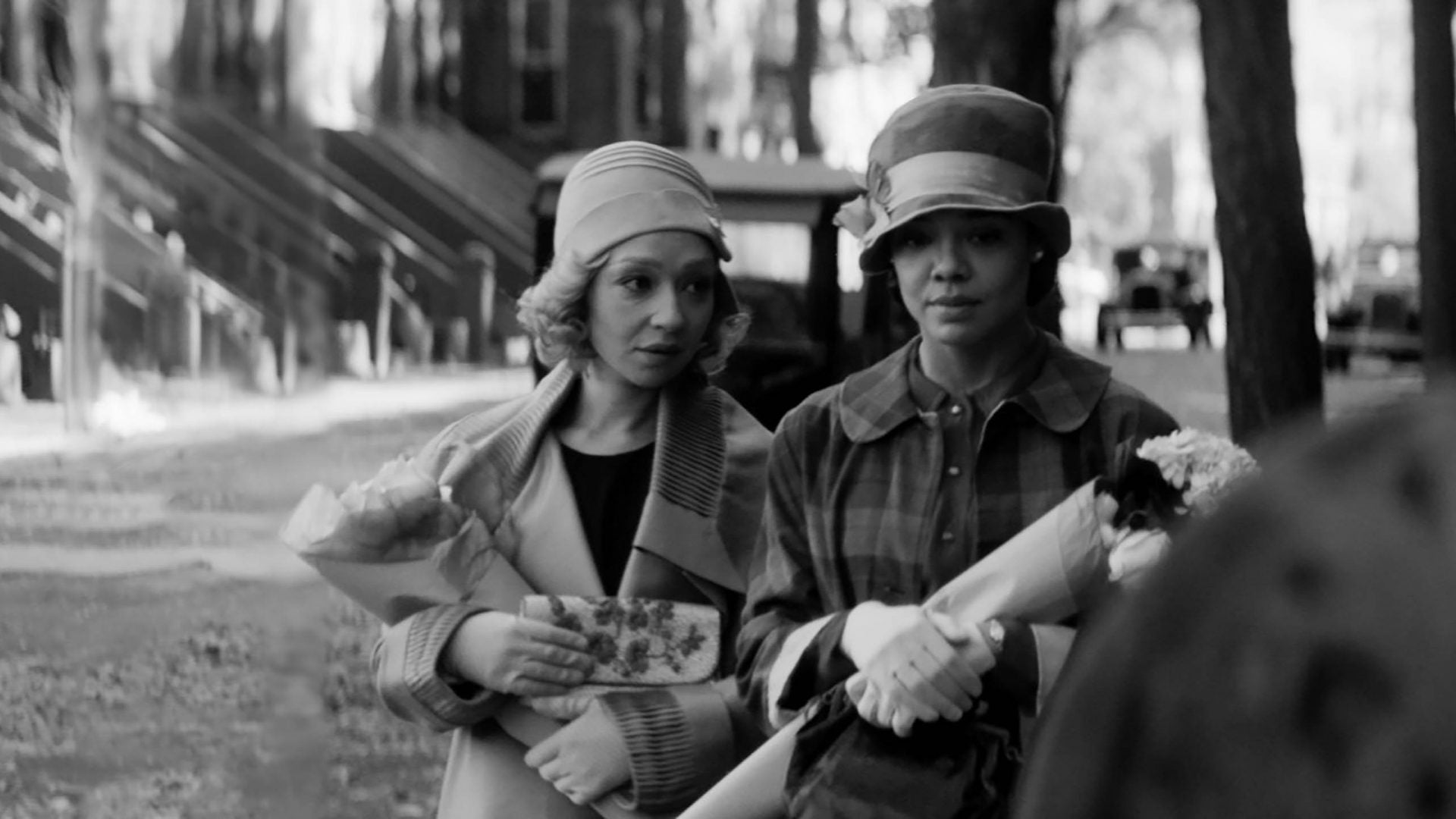
What we know of race, not ethnicity or culture, but race in and of itself is that it’s a manmade construct. Yet, it has defined so much of our lives, journeys, and experiences — especially in America. Bringing Nella Larsen’s 1929 novel Passing to the big screen, Rebecca Hall’s directorial debut is a visceral drama centering on race relations, colorism, jealously, anguish, and desire.
Set in Harlem amid the renaissance of the 1920’s, Passing follows Irene (Tessa Thompson) and Clare (Rutha Negga), childhood friends who meet again by happenstance one blazing hot summer day in the posh tearoom of New York City’s Drayton Hotel. It should have been a warm reunion, filled with talks of girlhood and current undertakings. However, from the moment Clare catches Irene’s eye across the grandly decorated room, something sinister begins brewing between the two women.
While Clare sits head held high and regal, her blonde hair perfectly coiffed, Irene is meek, hoping to go unnoticed using the brim of her cloche hat to cover her eyes. Irene is not supposed to be at the Drayton. A fair-skinned Black woman, she is a wife to a Black doctor (André Holland) and mother to two Black boys who live in a sprawling Harlem brownstone. Irene has only sought out the Drayton as a temporary refuge from the oppressive heat. However, in using her light hue for convenience, she is thrust down a collision course that leaves her barreling toward Clare.
Like Irene, Clare is a light-skinned Black from Harlem. However, she’s shed her past and heritage to marry a white businessman (Alexander Skarsgard), who also happens to be a proud racist. In the past decade, she has carefully concealed her identity and given birth to what most would describe as a lilly-white child.
In perhaps some of the best performances of their respective careers, Thompson and Negga portray women who are equally envious and enamored with one another. Though Hall never lets us into Clare’s world, Clare’s obsession with Irene or “Renie,” as she calls her, is immediately evident. The white-passing woman’s constant intrusions into Irene’s life make the already apprehensive housewife more skittish. Her nervousness surrounding Clare’s situation quickly morphs into a yearning and disgust as those closest to her, including her housekeeper Zu (Ashley Ware Jenkins), and her husband Brian, eagerly welcome the charismatic woman into their lives.
As the film presses on, Irene becomes increasingly off-kilter and fragile, clinging on to the respectability politics of the period and unable to stomach the racist terrors that fill the newspapers each day. Meanwhile, Clare seems unconcerned with the possibility of being found out. She’s bold and fearless, leaning into her “wild desire” for a different kind of life. She revels in being a voyeur into Irene’s life, dazzled by the “exoticism” of Harlem’s vibrant aura while winning over Brian and Irene’s tight-knit circle of friends with her flirtatious demeanor and silky voice.
Though their light skin obviously affords both women certain luxuries that darker skin Black people could never obtain, Passing isn’t just about colorism. Filmed in a lush black and white, the film is about obsession and desire.







With a haunting tone, Hall’s Passing moves at a leisurely pace, allowing the power of Larsen’s story to resonate with the audience. From the moment Thompson’s face comes into the frame in the film’s opening sequence, it’s clear that something awful will occur. When it does, it’s a reminder of the dangers of racism and the sheer recklessness of Clare’s behavior.
As Passing comes swirling toward its shocking conclusion, there is no relief and no right answers. Both Irene and Clare are at once the villains and the victims of a society that would force them to choose one existence over another, vilifying Claire’s choices in one breath and praising Irene’s fair skin in the next.
Passing premiered at Sundance Festival Jan. 30, 2021.





